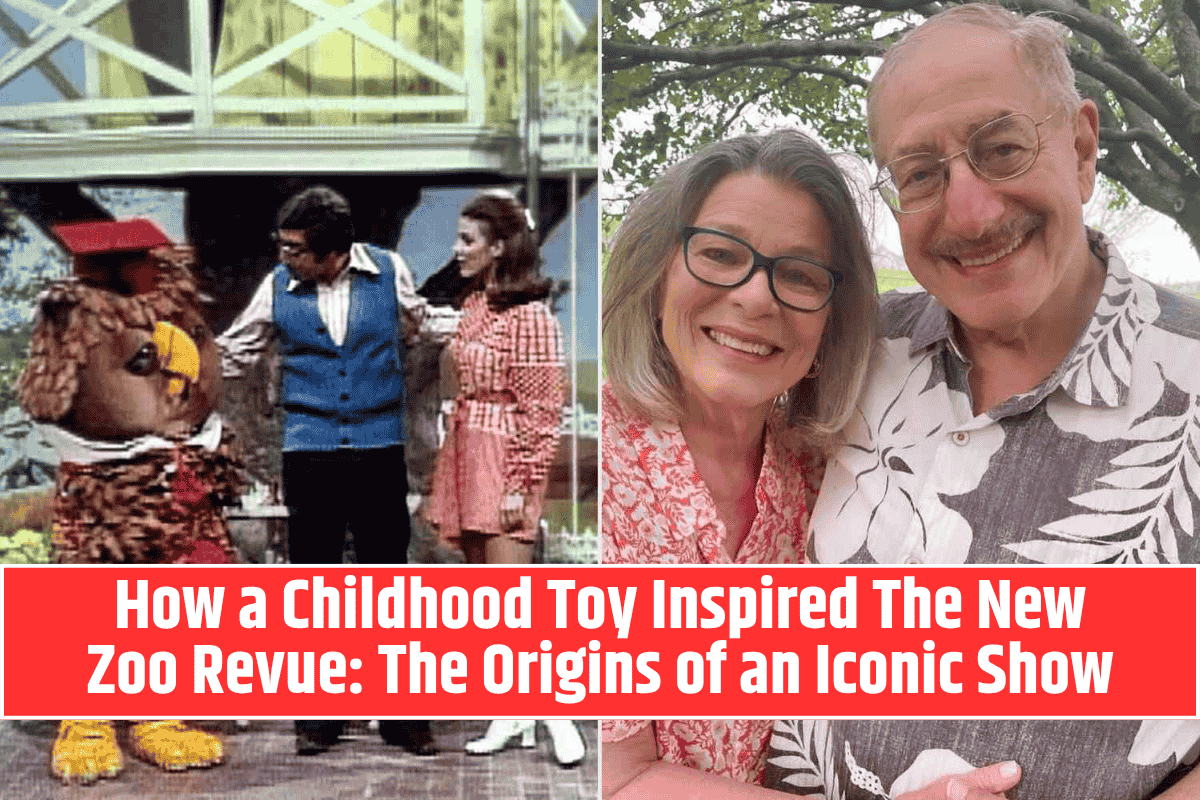The iconic children’s television show, The New Zoo Revue, which aired from 1972 to 1977, continues to hold a special place in the hearts of fans who grew up watching it.
Doug Momary, one of the creators of the show, recently opened up about the childhood treasure that set the stage for this beloved program.
A Toy Store Moment That Sparked Creativity
It all started in a toy store in Whittier, California, where Momary’s mother worked. The store owner had a beanbag frog named Freddie, and during a conversation with Momary’s mom, the idea of creating a children’s TV show based on this frog came up.
The store owner asked if Momary could help bring the concept to life. At the time, Momary, a playwriting major, was intrigued, though he never imagined the idea would lead to the creation of a beloved kids’ show.
Momary went home, wrote a theme song, sketched out sets, and even created characters. The idea was well received, and eventually, he pitched the concept to Mattel. Despite some early setbacks, including no immediate standing ovation during a pilot presentation, the idea would evolve into The New Zoo Revue.
The Early Days: A Personal Journey into Television
Momary and his wife, Emily Peden (who would go on to play Emmy Jo on the show), faced a steep learning curve, especially when transitioning from theater to television. They both had theater backgrounds—Peden graduated from the American Academy of Dramatic Arts in New York, and Momary studied at Cal State Fullerton.
However, adapting to the television medium and understanding the technicalities of camera work was a new challenge. Despite this, they played an active role in casting and shaping the show, even collaborating with the Krofft brothers—Sid and Marty Krofft—who designed the show’s costumes.
A Show Focused on Emotional Intelligence
Unlike shows like Sesame Street, which focused on basic learning (e.g., numbers and letters), **Momary envisioned a show that would focus on emotional intelligence.
His goal was to teach kids how to interact with their parents, siblings, and peers. It wasn’t just about educational lessons but also about addressing human relationships.
The show’s unique blend of fun and moral lessons was appreciated by both children and parents, though it wasn’t always an easy sell. At one point, Momary had to fight for a show about greed, trying to convey the message to children to be happy with what they had. Although Mattel initially balked, they eventually allowed the episode, and the lesson stuck.
Unexpected Legacy and Impact
Despite being initially unaware of the deep impact The New Zoo Revue had on its young viewers, the show’s legacy became more evident as fans started to connect with the creators on social media.
Many fans of the show, now adults, have gone on to achieve success in various professions, and they continue to share how the show influenced them.
Momary and Peden were surprised by how deeply their work had affected viewers. Through their social media engagement, they’ve been able to reconnect with fans in a more meaningful way.
This has led them to reflect on how the values of kindness, respect, and emotional understanding they worked to instill in their young viewers have had a lasting impact.
The Next Chapter: New Shows and a Lasting Legacy
Today, Momary is working on two new projects: Nights of IT: Guardians of the Digital Realm, a blend of animation and live action with songs for kids, and Safari Town, an animated show about children interacting with animals. Peden has a newsletter on The New Zoo Revue website that fosters interaction with fans, keeping the legacy alive.
Momary reflects on the rewarding feeling of seeing his career come full circle. He started with aspirations of writing musical comedies for Broadway, but the unexpected success of The New Zoo Revue allowed him to bring those dreams to life for children in a way he never anticipated.
Even though The New Zoo Revue aired in the ’70s and ’80s, its message still resonates today. The themes of respect, kindness, and emotional growth are just as important now as they were back then, and for Momary and Peden, it feels like the show is more relevant than ever.
Though The New Zoo Revue has been off the air for decades, its influence lives on. As Momary notes, if it were up to him, he’d still be producing the show. He believes that the topics they addressed in the 1970s are even more relevant today.
Momary and Peden’s passion for creating content that speaks to kids has made a lasting impact that continues to touch lives across generations.
The show may have ended in 1977, but the heart of The New Zoo Revue — and its lessons about kindness, empathy, and emotional intelligence — remains alive in the hearts of its fans.












